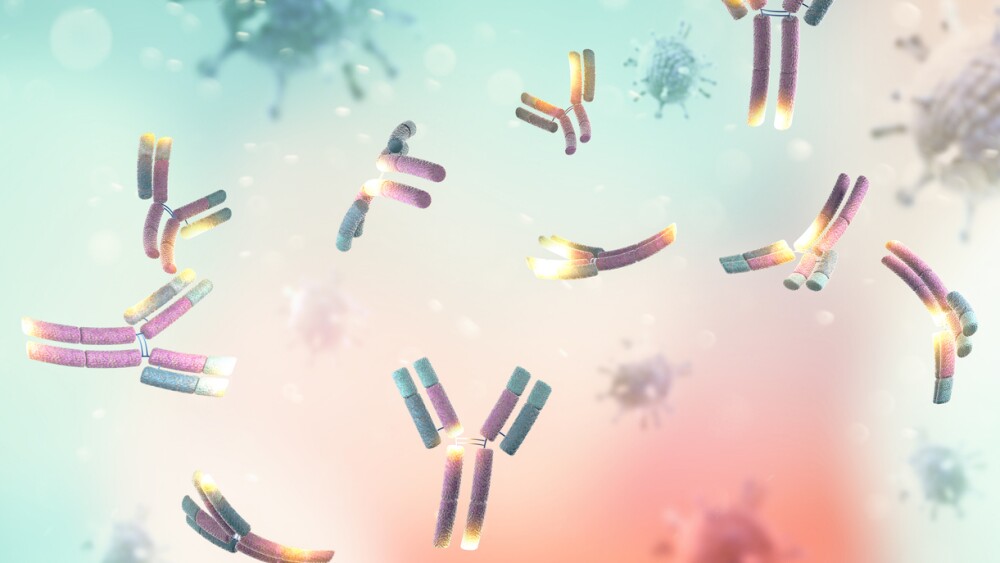Clinical and Histological Results Signal Prolonged Effectiveness in the Treatment of Advanced Retinal Degenerative Diseases.
Clinical and Histological Results Signal Prolonged Effectiveness in the Treatment of Advanced Retinal Degenerative Diseases |
| [04-February-2022] |
|
MENLO PARK, Calif., Feb. 4, 2022 /PRNewswire/ -- Regenerative Patch Technologies LLC (RPT) announced today the publication of results from its Phase 1/2a clinical trial of the CPCB-RPE1 implant for advanced, dry age-related macular degeneration. The publication entitled "Survival of an HLA-mismatched, Bioengineered RPE Implant in Dry Age-Related Macular Degeneration" has been published online in Stem Cell Reports and can be found at https://doi.org/10.1016/j.stemcr.2022.01.001. The publication describes immunological and histologic results from RPT's clinical trial that was supported by funding from the California Institute of Regenerative Medicine and Santen Pharmaceuticals (www.clinicaltrials.gov. NCT02590692). The CPCB-RPE1 implant, a bio-engineered scaffold supporting a layer of stem cell-derived, retinal pigmented epithelial (RPE) cells, utilizes unmatched, "allogenic" RPE cells as one of its two main components. Subjects in the trial received only short-course immunosuppression. There were no clinical signs of rejection of the implanted cells. "Even though the donor cells on the implant were highly HLA-mismatched with those of the patient, no clinical signs of retinitis, vitritis, vasculitis, or choroiditis were observed even in the absence of long-term immunosuppression," stated Dr. Amir H. Kashani, lead author on the publication, principal investigator of the clinical trial at the University of Southern California, and currently Associate Professor of Ophthalmology at the Wilmer Eye Institute. Furthermore, antibodies targeting the mismatched RPE cells of the implant were not identified in the peripheral blood of recipients. Eyes from one subject, who passed away >2 years after implantation due to an unrelated cause, were examined histologically. The implant was found stably positioned at the site of administration and RPE cells were present along its entire length. Even having been placed in an area of extensive degenerative disease, the implanted cells displayed characteristic markers of mature, polarized RPE cells and evidence of phagocytic function, a key property of the RPE. "The long-term persistence of the mature RPE cells in this subject suggests the implanted allogenic RPE cells can survive and function long-term in the retina even in areas of extensive disease", said Dr. David Hinton, founder of RPT, Professor of Pathology, Keck School of Medicine at USC, and author on the publication. Subjects in the trial were all legally-blind in the treated eye at enrollment and the implants were delivered to large areas of degenerative disease stemming from geographic atrophy. At an average of 34 months post-implantation, 27% (4/15) of patients showed >7 letter improvement in best corrected visual acuity (BCVA) which ranged from 7-15 letters or 1-3 lines on an eye chart; 33% (5/15) remained stable with a BCVA within 5 letters of baseline value. In contrast, visual acuity in the fellow, untreated eye declined by more than 8 letters (range 8-21 letters or 1-4 lines on an eye chart) in 80% (12/15) of subjects. There was no improvement in BCVA in the untreated eye of any subject. "These observations of allogenic cell survival and even improvement in vision in some subjects are critically important milestones for the use of the implant to treat geographic atrophy" stated Dr. Mark Humayun, founder of RPT, Director of the USC Ginsburg Institute for Biomedical Therapeutics and Co-Director of the USC Roski Eye Institute, Keck Medicine of USC. "Improvement in vision in legally-blind patients with geographic atrophy is extremely rare and the extensive decline in vision as observed in the untreated eye is the typical course for patients with this disease." The observed long-term cell survival on the implant also has positive implications for the manufacture and costs of such a therapy. "The use of allogenic cells enables large-scale, automated manufacturing procedures simplifying the logistics and decreasing the costs of CPCB-RPE1 manufacture for a very large, intended target patient population," said Dr. Dennis Clegg, founder of RPT and Professor at the University of California Santa Barbara. "The results from the clinical trial provide important supportive data that the CPCB-RPE1 implant can be delivered, survive for prolonged periods and potentially improve vision in geographic atrophy patients for which there are no approved therapies," stated Dr. Jane Lebkowski, President of Regenerative Patch Technologies. "It is the vision of the company to develop a treatment that not only slows progression of disease but actually improves vision for affected individuals." About Regenerative Patch Technologies and the CPCB-RPE1 Implant Regenerative Patch Technologies LLC is a clinical-stage company developing stem cell-based implant technologies for the treatment of retinal diseases. The CPCB-RPE1 implant, RPT's lead product, is a bio-engineered implant consisting of stem cell-derived, mature, polarized retinal pigmented epithelial (RPE) cells on an ultrathin synthetic parylene membrane. The implant is designed to replace the retinal pigmented epithelium and Bruch's membrane in the eye that degenerate in dry age-related macular degeneration. The technology to produce the CPCB-RPE1 implant is exclusively licensed to RPT from the University of Southern California, the California Institute of Technology and UC Santa Barbara. Drs. Humayun, Hinton and Clegg have an equity interest in and are consultants for Regenerative Patch Technologies, LLC. For inquiries contact: Regenerative Patch Technologies LLC
SOURCE Regenerative Patch Technologies |




